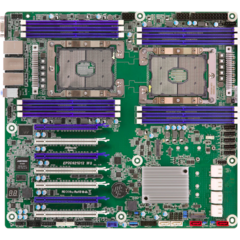How to query BIOS S/N in C#?
Go to solution
Solved by Mojo-Jojo,
Upon having another look at the WMI spec, it seems like Win32_SystemBIOS is not the correct class to use.
Win32_SystemBIOS simply contains the Win32_BIOS and Win32_ComputerSystem classes.
You already tried to use Win32_BIOS later, which should be what the WMIC command selects as well.
I think this is rather an issue of using ManagementObject correctly.
I can't try out code for you sadly, since I don't have Visual Studio installed and don't often program in C#.
But looking at the documentation, a ManagementObject has a Properties->Value property, which might yield the desired results.
So what I would try is a simplified form of what you tried, without the object searcher:
ManagementObject BiosObject = new ManagementObject("Win32_BIOS");
string MySN = BiosObject.Properties["SerialNumber"].Value.ToString();

















Create an account or sign in to comment
You need to be a member in order to leave a comment
Create an account
Sign up for a new account in our community. It's easy!
Register a new accountSign in
Already have an account? Sign in here.
Sign In Now